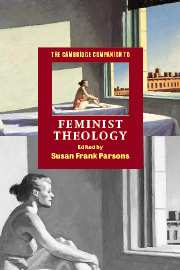8 - Trinity and feminism
from Part two - The themes of feminist theology
Published online by Cambridge University Press: 28 May 2006
Summary
May the deep of uncreated Wisdom call to the deep of the wonderful Omnipotence, to praise and exalt such breath-taking Goodness, which guided the overflowing abundance of your mercy down from on high to the valley of my wretchedness!
Gertrude of Helfta opens her book of God's loving-kindness by addressing her God -Wisdom, Omnipotence, Goodness. In addressing the triune God, Gertrude places her book in a well-established Christian tradition. But this is more than a formulaic opening - reflection upon the doctrine of the Trinity has inspired some of the richest writings on love, gift, and grace, a significant part of it written by women, to be found in Christian literature. The doctrine of the Trinity, while by consent a difficult topic on which to preach, informs Christian liturgy and provides the basic frame for the ancient creeds - 'I believe in God, the Father, the Son, and Holy Spirit.' It has a central place in the Christian doctrine of God classically conceived. The Christian doctrine of God holds in tension two convictions seemingly at odds - that God is One, and that there is diversity in the Godhead. A motive for its formulationwas the Christian insistence that their faith was monotheistic, even while praying to one God and to Jesus as the Lord.
- Type
- Chapter
- Information
- The Cambridge Companion to Feminist Theology , pp. 135 - 150Publisher: Cambridge University PressPrint publication year: 2002
- 2
- Cited by

